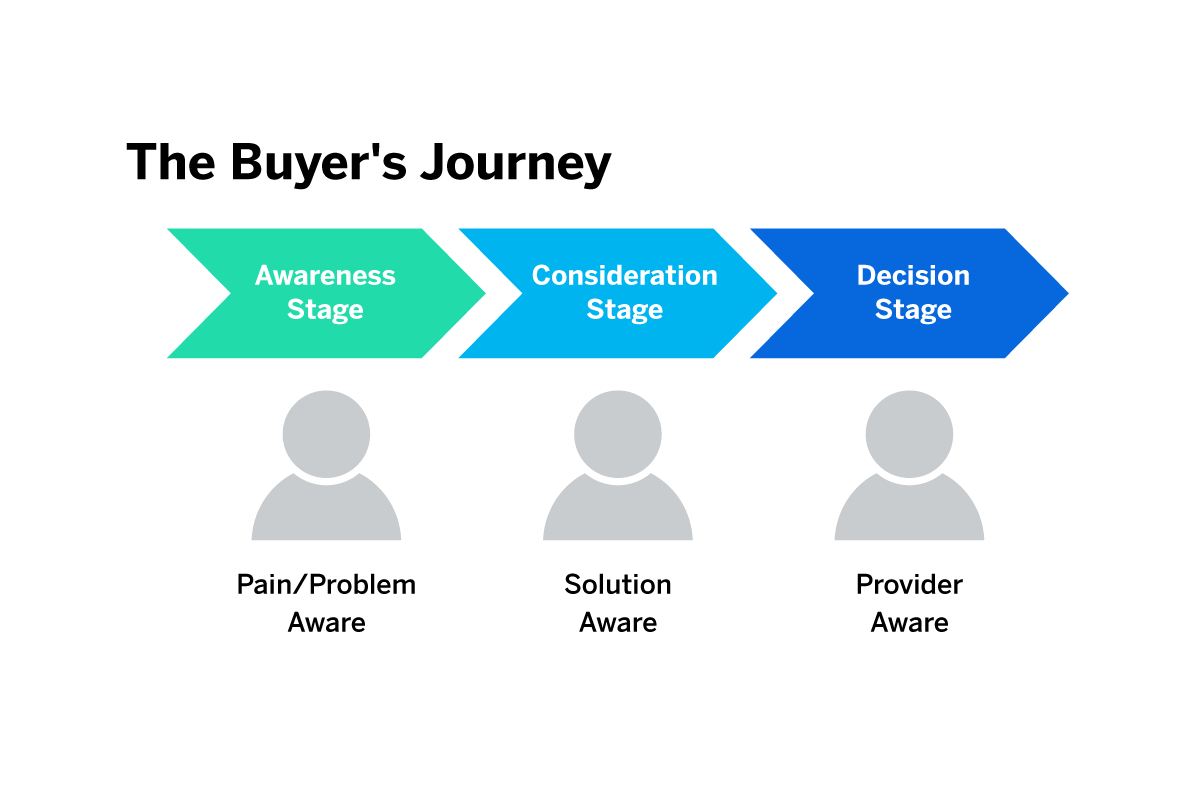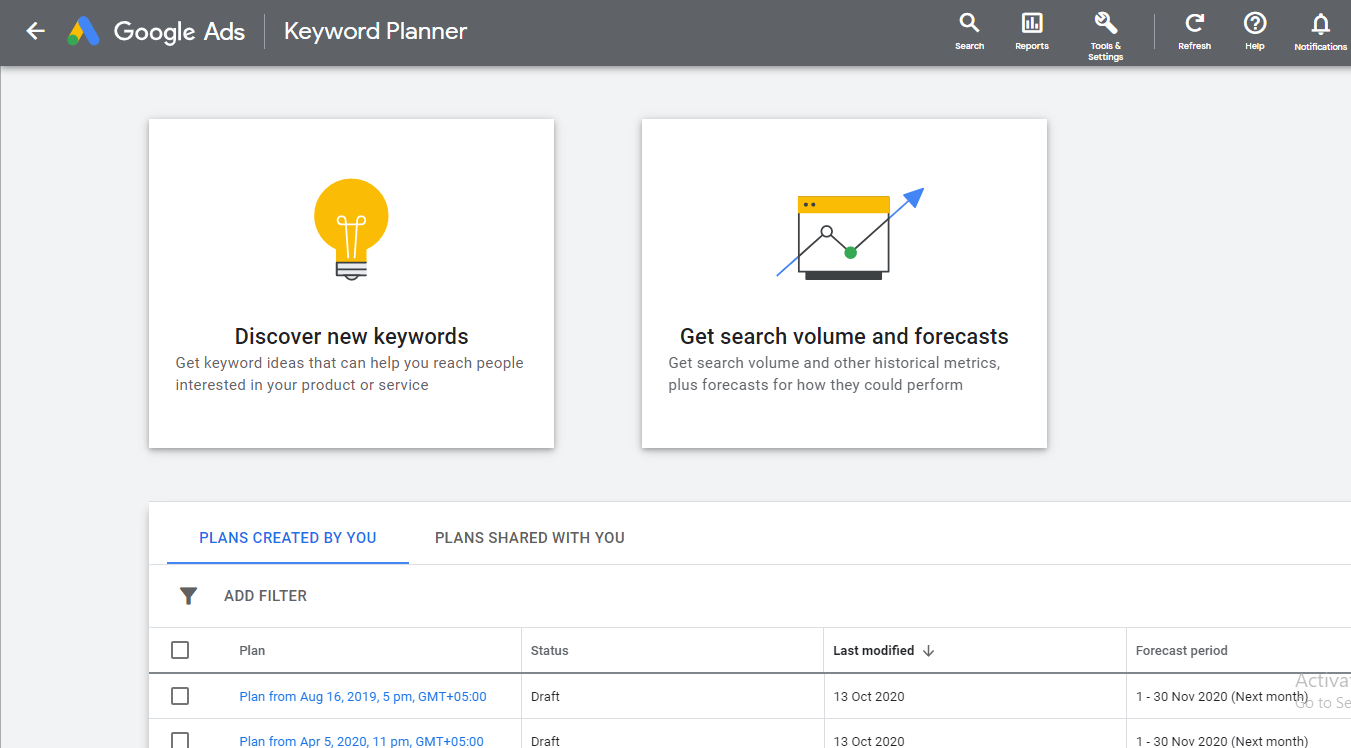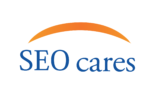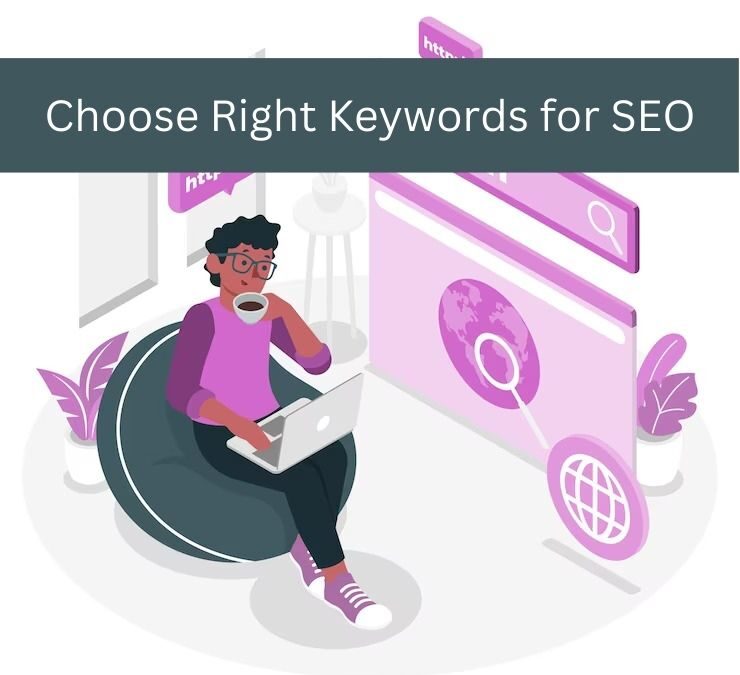When it comes to optimizing your website for search engines, choosing the right keywords is essential.
Without the right keywords, it’s difficult for search engines to understand the content of your website, making it harder for potential customers to find you online.
In this article, we’ll discuss the process of choosing the right keywords for SEO and how it can help your website rank higher in search results.
Start with Keyword Research
Before starting any task related to keywords, the first thing to do is keyword research.
Let’s quickly remember what we mean by the term “keyword” before getting into the details.
What Is a Keyword?
A keyword is a specific word or phrase that summarizes the content of a document or a web page.
In the context of search engine optimization (SEO), a keyword refers to a word or phrase that someone might use when searching for a particular topic or product online.
If you have a lot of money to spend on advertising, it’s smart to hire an SEO agency to find the best words to use in your ads.
These experts use special tools to do this work and know how to do it well.
Even though the tools they use can be expensive, it’s worth it because they can help you get better results.
When you work with an agency, they will always start by doing this important research to make sure your ads will work well.
If you don’t have much money, you can find an SEO freelancer on Upwork.
It’s cheaper than hiring an agency, but the quality may be different, and you have to find the right freelancer yourself.
If you want to save money or learn about it yourself, you can do your own keyword research by following a trustworthy online guide.

Plan Your Buyer’s Journey
When someone learns about your product or website, they usually don’t buy it right away, especially if it’s expensive.
Instead, they go through different stages like learning more, thinking about it, and finally deciding to buy.
This process is called the buyer’s journey in marketing.
Awareness When someone realizes they have a problem, but may not know exactly what it is, they are in the awareness stage.
For instance, an office worker who experiences wrist pain without knowing the exact cause is in the awareness stage.
During the consideration stage, In the consideration stage, the person starts to name their problem and looks for solutions.
For example, an office worker with wrist pain might see a doctor and find out that they have RSI.
The final stage In the decision stage, the person decides on a solution to their problem.
As marketers, we want them to choose our product over competitors.
For example, an office worker with wrist pain may decide to buy a gel mouse mat and ergonomic keyboard, but still needs to choose the brand and where to buy them from.
When creating content, it’s important to think about who you’re writing for and what stage of the buyer’s journey they are in.
For example, a company that makes ergonomic keyboards could write a blog post about RSI for people in the awareness stage.
The post might end by asking readers to sign up for a newsletter with special deals for those in the decision stage.

source: www.qualtrics.com
Analyze Search Intent
To effectively optimize content for search engines, it is essential to understand the mindset of your customers and their search intent.
For instance, queries such as “Buy cheap shoes” and “My water shoes are damaged” are significantly different in nature, with the former being a commercial keyword and the latter being an informational one.
Therefore, it is necessary to use the appropriate keywords that match the search intent to target specific landing pages or web pages for those search phrases.
To fulfill your call-to-action (CTA), offer content related to all three areas of search intent.
Provide unique content that is relevant to your customers’ specific queries when they search for information.
Blog articles are a great way to target informational searches and can include multiple keyphrases.
Link this content to your product pages or contact forms to enhance the user experience.
While commercial or transitional intent searches are highly competitive, they are also the easiest to focus on.
If you want your website to rank well on Google, you might want to consider hiring an SEO agency to help you.
They can write content that includes the right keywords to help your website show up in search results when people search for those keywords.
In summary, understanding search intent and using the appropriate keywords are critical factors in optimizing content for search engines and enhancing the user experience.

Understand Keyword Types
Before beginning your keyword research, it is important to understand the three categories of keywords:
- head keywords
- Body keywords
- Long-tail keywords
Let’s see about these types of keywords in detail.
- Head keywords are short, typically consisting of one to two words, and generate a large number of search results.
For instance, “shoes” is a head keyword that yields millions of search results on Google.
- Body keywords are a bit longer, consisting of two to three words, and generate a more targeted set of results.
For example, “running shoes” is a body keyword that generates a more specific set of search results.
- Long-tail keywords are even longer, consisting of four or more words, and provide highly specific search results.
An example of a long-tail keyword is “best running shoes for flat feet,” which generates a more targeted and relevant set of search results.
It can be difficult to rank well for head keywords due to the high competition, so it is generally better to focus on long-tail keywords instead.
By focusing on long-tail keywords, you can generate more targeted traffic to your website and increase the likelihood of conversions.

Keyword Planner Tools
To choose the right keywords, start by knowing where to research.
Google’s free Keyword Planner tool shows which keywords work well and which don’t.
Access the Keyword Planner through Google Ads, but don’t create a PPC ad.
Just create an account and enter a key phrase.
A keyword research tool shows how many people have searched for specific keywords over time and provides related phrases with traffic counts.
Use high-performing phrases to improve your advertising and group-related keywords for SEO.
Moz Explorer is an alternative to Google’s Keyword Planner.
Enter a keyword or web address, create a free account, and get monthly volume and ranking difficulty information for up to 10 queries.

Refine Your Keywords with LSI (Latent Semantic Index)
LSI, or Latent Semantic Indexing, is a technique used to identify related terms and phrases in a set of documents or a corpus.
By analyzing the relationships between different terms and phrases, LSI can help refine and improve keyword selection for search engine optimization (SEO) and other information retrieval applications.
This can lead to more effective content marketing and better search engine rankings.
Analyze the Competition
Look at your competitor’s websites to find good keywords.
SEMRush is a tool that helps you see how much traffic your competitors get. Use it to learn from them and improve your own website.
SEMRush costs money.
That’s why some companies hire an SEO firm to do this work for them.
They’ll get the reports and the SEO firm does the hard work.

Keywords and Matching Media
Incorporating keywords into your content requires particular expertise, however, several websites appear to be inserting keywords forcefully into their content with the expectation of favorable outcomes.
Google actively focuses on pages filled with spam, and either eliminates them or assigns them an extremely low rank.
Using the right keywords and images is important for improving your website’s rankings.
SEO Cares focuses on creating great website content for SEO.
Good website copy, blogs, and articles are key to successful SEO and should be prioritized from the start.
Link With the Landing Page
To make your landing pages effective, you must link them to your chosen keywords through optimization.
Landing pages contain targeted content, so it is vital to optimizing them to match your selected keywords.
This includes incorporating keywords into the page title, H1 H2 H3 headings, and image tags, as well as ensuring that everything on the page relates to the keywords you want to rank for.
When selecting keywords, remember to keep your landing page in mind.
Optimizing your landing page, not only will it help improve your Google ranking, but it will also serve as the starting point for generating sales or leads.
So, take the time to optimize your landing pages to ensure that they are relevant to your selected keywords, and provide a seamless user experience that leads to conversions.

Choosing the Right Keywords With an SEO Agency
If you’re struggling to choose the right keywords for your website, it may be time to consider hiring an SEO expert agency.
With our expertise, we can conduct thorough keyword research and provide you with a comprehensive list of relevant keywords that will improve your website’s search engine rankings.
By outsourcing SEO Cares, you can save time and ensure that your website is optimized with the best possible keywords.
FAQs about choosing the right keyword for SEO
Why is choosing the right keyword important for SEO?
Choosing the right keywords is crucial for SEO because it helps improve your website’s ranking on SERPs.
If you target the wrong keywords, your content won’t show up in relevant search results, leading to poor traffic and sales.
How do I choose the right keywords for my website?
To choose the right keywords for your website, you should conduct thorough keyword research by using tools like Google Keyword Planner or SEMrush.
You should also focus on long-tail keywords, consider your target audience’s search intent, and analyze your competitors’ keywords.
What are long-tail keywords?
Long-tail keywords are phrases containing three or more words that are highly specific and less competitive.
Targeting long-tail keywords can help your website rank higher in search results for niche search queries.
How many keywords should I target on a webpage?
There is no set number of keywords that you should target on a webpage.
However, it’s best to target one primary keyword and a few related keywords or phrases to avoid keyword stuffing and ensure that your content remains relevant to the user.
How often should I update my website’s keywords?
You should update your website’s keywords regularly, depending on your industry and market changes.
Review your website’s keyword performance, stay up-to-date on industry trends, and adjust your keywords accordingly to remain competitive.
Can I use the same keywords on different web pages?
Yes, you can use the same keywords on different web pages, but make sure each page’s content is unique and relevant to the keyword.
Avoid duplicating content across pages or using the same keyword too frequently to avoid penalties from search engines.
How do I track the performance of my chosen keywords?
You can track the performance of your chosen keywords by using tools like Google Analytics or SEMrush.
These tools provide data on your website’s traffic, keyword rankings, and user behavior, allowing you to optimize your keyword strategy and improve your SEO efforts.
Read: Find Low-Competition Keywords With High Traffic (Google, YouTube, Fiverr)

